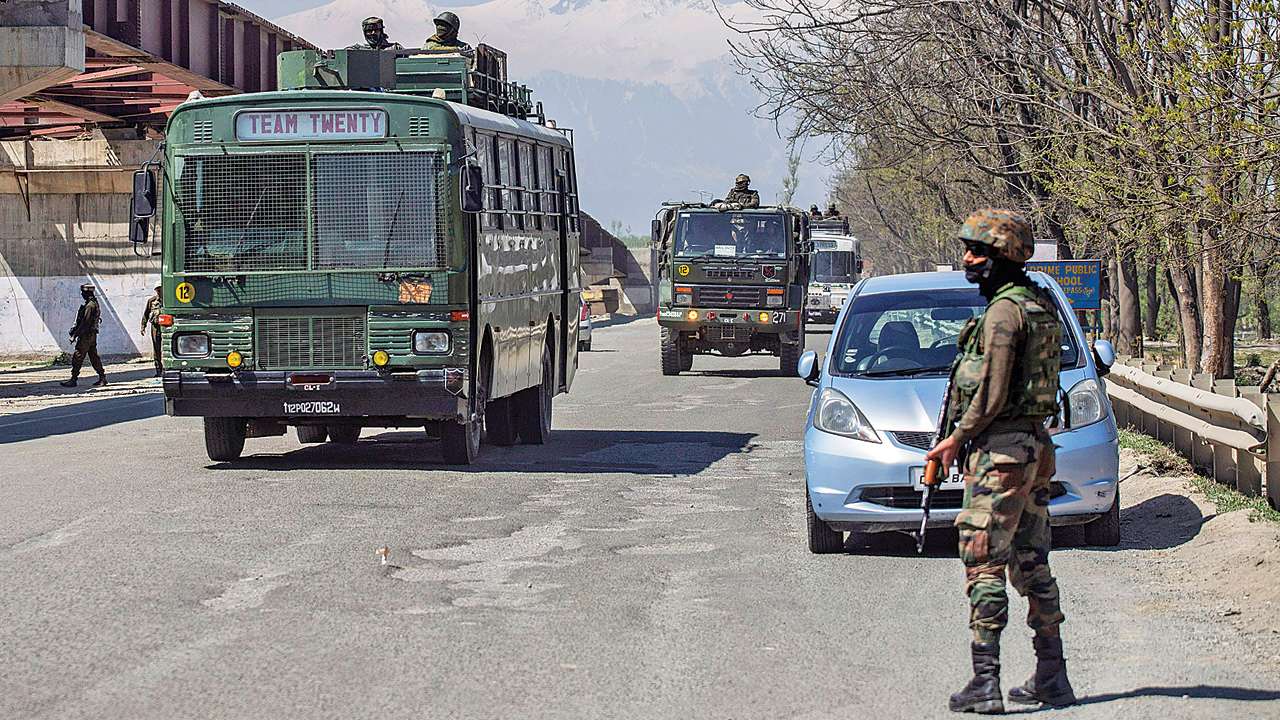
During the early days of militancy in Kashmir in 1990, an Army unit had taken over the hostel at the Government College, Sopore.
Instead of hiring labourers to construct bunkers, soldiers forced some students to carry bricks and stones for masonry.
Among those picked up was a lecturer, who had been selected for a teaching job just a day ago. Still celebrating, he refused to work and got into an argument with the soldiers.
As the argument heated up, a soldier allegedly slapped him with the butt of his gun. Soon the officer incharge — a Captain — intervened and took away the lecturer to a hospital, where he was diagnosed with a minor collar-bone fracture.
In the evening, when the officer handed over all students to their wards, he refused to return the lecturer to his family, insisting that he will ensure his fracture was healed.
To the lecturer’s misfortune, a touring Brigadier next day lashed out at the Captain for keeping a civilian inside an Army camp.
He took the lecturer away, shifting him to Srinagar-based Corp Headquarters. Instead of releasing him, the Army brass, handed him to the police.
But, the police filed a case under the Public Safety Act (PSA) — a preventive detention law — against the man. The lecturer’s harried parents, after many efforts, got a postcard from the Udhampur jail confirming his detention.
The court repeatedly quashed his detention, but the police continued to slap the cases under the PSA to ensure he remains in jail.
For more than seven years, the lecturer remained in custody without any crime or judicial trial.
There is a similar story about Pirzada Mohammad Ashraf of Batagund village of Verinag in south Kashmir, who was held in connection with a grenade blast at Anantnag in 2004. He is currently in Anantnag jail for more than 14 years, without a trial. Thus far, the court has quashed his detention 13 times.
Instead of putting him on trial, the police has resorted to the easy way out of circumventing the preventive detention law.
Late journalist Mohammad Maqbool Khokhar, working as a reporter/photographer with a mass circulated Urdu weekly, Chattan, was arrested in September 2004 under the Official Secrets Act (OSA), but he was never tried under OSA. Instead, PSA was slapped on him. Khokar continued to be in jail, even as the high court quashed the PSA thrice in three years.
While the Congress promise on the controversial Armed Forces’ Special Powers Act (AFSPA) has triggered a political controversy, there is hardly any debate on the more lethal and frequently misused PSA in Jammu and Kashmir.
Enacted by the National Conference (NC) in 1978, the Peoples Democratic Party (PDP) has not been far behind in its misuse — even against minors — during its rule.
In 2015, even the Ministry of Home Affairs (MHA) had advised the Jammu and Kashmir government to ensure judicious use of the PSA.
On June 2, 2012, the Jammu and Kashmir High Court noted that Section 8 of the PSA, which places a person under preventive detention, had been exercised in an arbitrary manner.
Three independent interlocutors appointed by the previous UPA government had also recommended amendment to the PSA, diluting its provisions.
In 2002, when Mufti Mohammad Sayeed had assumed office with the support of Congress, he had stopped the practice of recycling PSA against individuals to ensure their stay in prison.
The first person to benefit was JKLF leader Showkat Bakhshi, who was behind bars for 12 years under the PSA, on grounds of having dug a cricket pitch during the India-West Indies match in Srinagar in 1983.
The continuous use of extraordinary detention powers under the PSA, rather than prove guilt in a case of law, has foxed civil rights activists and lawyers.
Amnesty International, in a report, has described PSA as a “lawless law”. Its unaccountable use has hampered the investigation and prosecution skills of the Jammu and Kashmir Police, as it saves them the bother of gathering evidence to be presented before a court of law.
The rate of conviction for possession of unlawful weapons — one of the most common charges brought against alleged supporters or militant groups — is 0.5 per 100 cases or over 130 times lower than India’s national average.
Similarly, the conviction rate for attempt to murder in J&K is eight times lower than the national average, seven times lower for rioting and five times lower for arson.
In contrast, the number of persons in detention under the PSA is 14 times higher than the national average.
The government had introduced the PSA in 1978 as a deterrent against timber smuggling, much before militancy reared its head. It finds its roots in the Defence of India Act (DIA), a colonial, British-time legislation.
But PSA happens to be a more punitive form of DIA. It limits the powers of the court to review detention orders and gives legal immunity to any government officer acting in good faith in pursuance of the Act.
It was meant to allow preventive detention of people against whom there may have been no recognised criminal offence.
In his book The RSS Story, the late BJP leader KR Malkani, quotes RSS ideologue Madhav Sadashiv Golwalkar as lamenting the tendency of ruling parties to grab as many extraordinary powers as possible. He quoted Golwalkar as saying that “ours is the only democratic country to have emergency laws even when there is no fighting”. Ironically enough, his disciples are drafting as many stringent security laws as they possibly can.
The author is the Chief of National Bureau, DNA